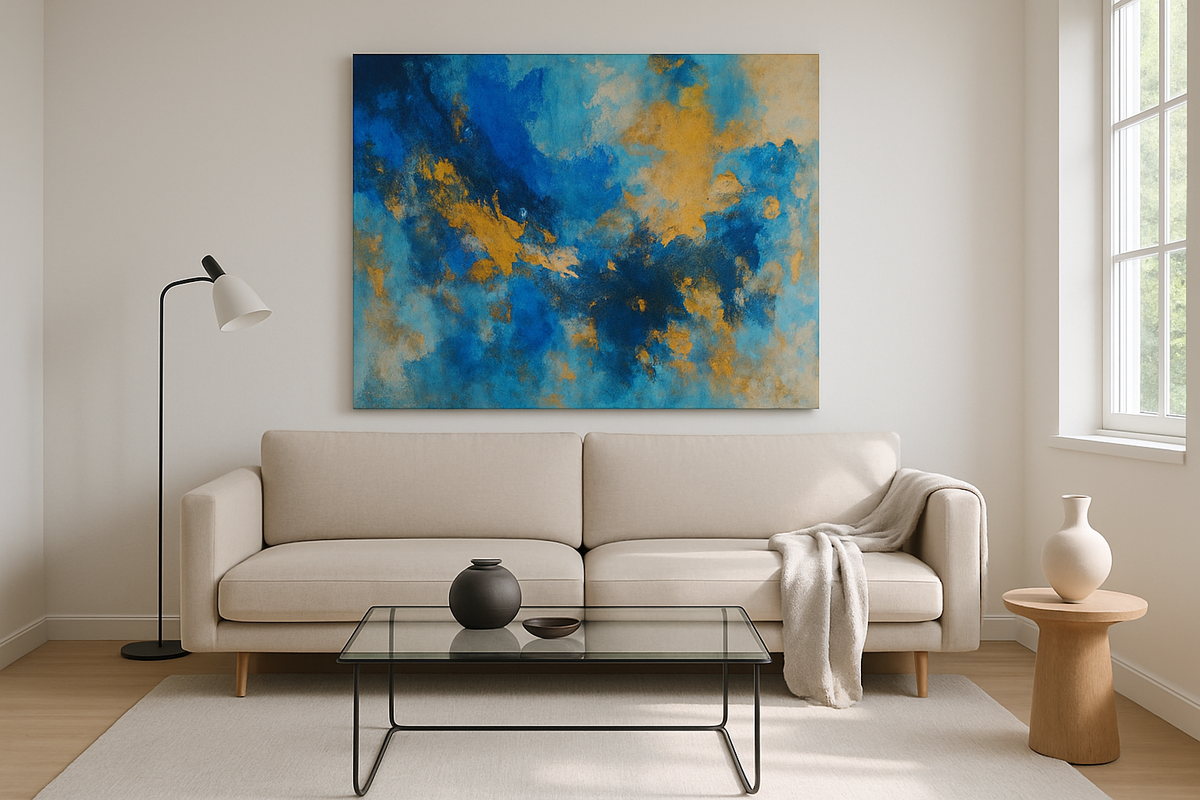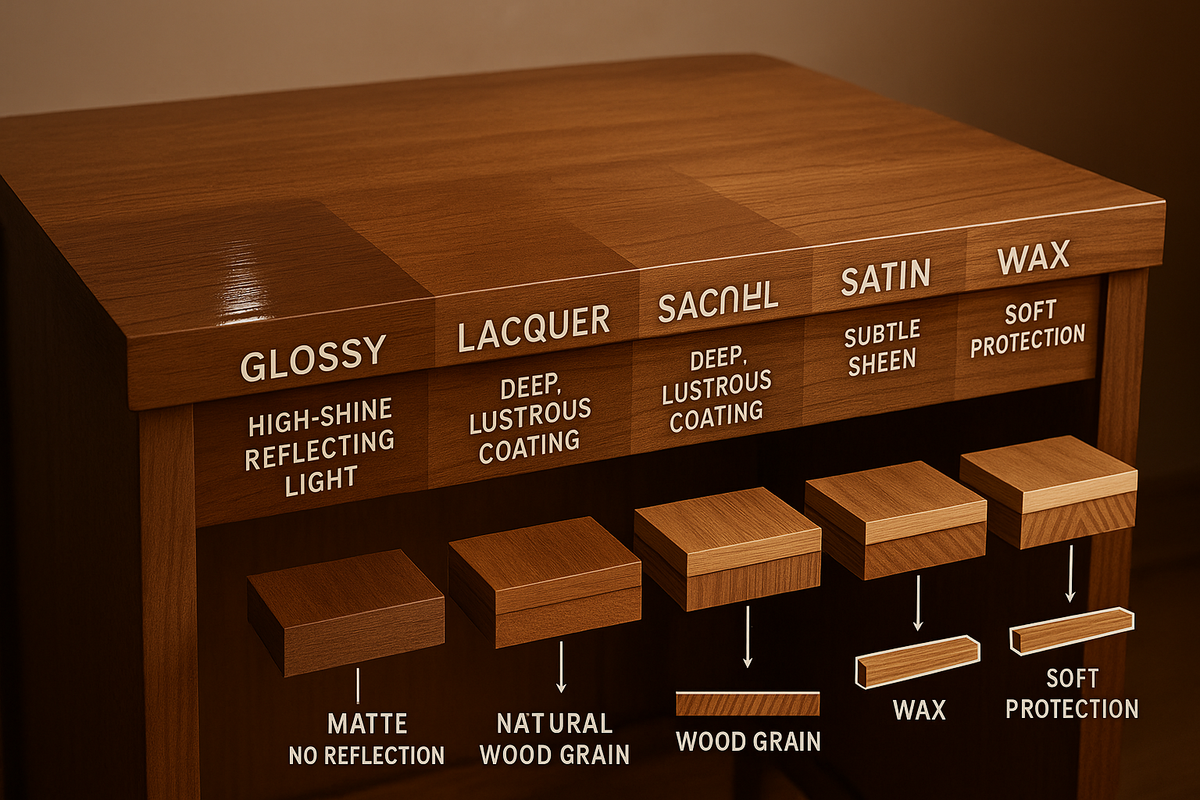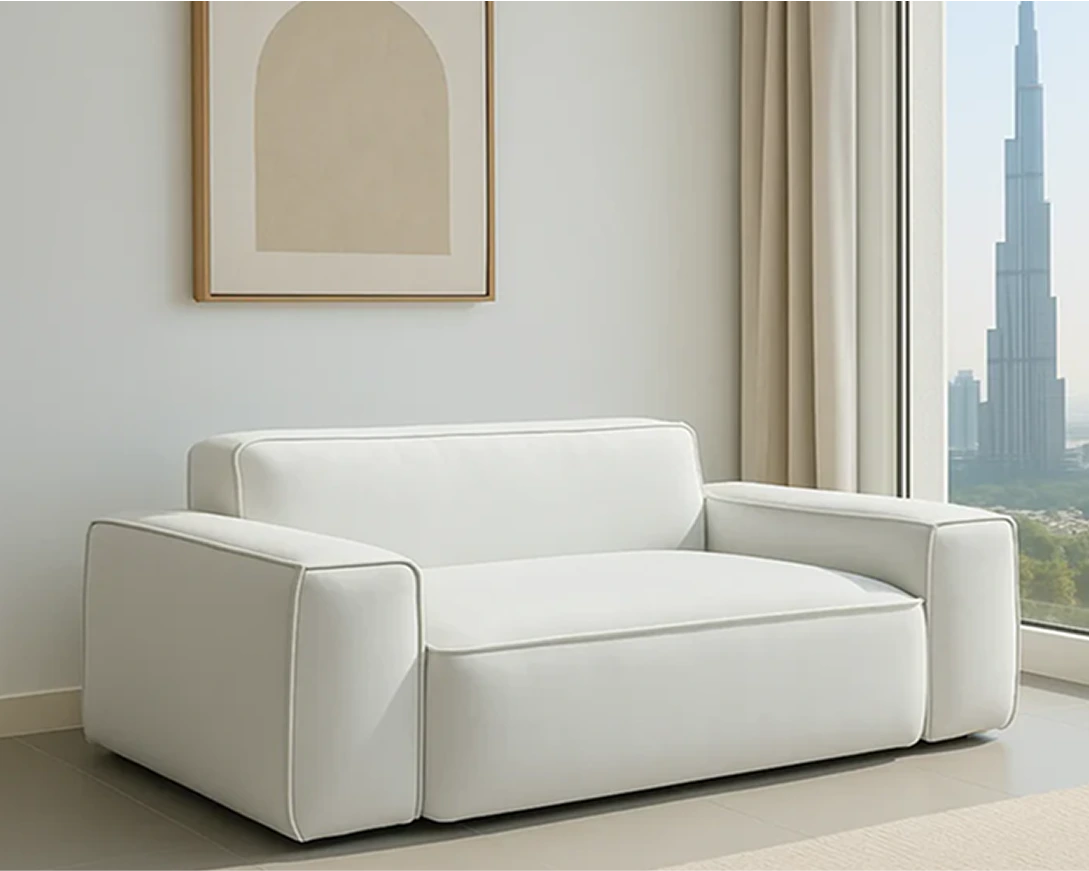Introduction
What comes to your mind when you think of classy or timeless furniture? I bet, you are thinking of a wooden furntiure. They have such an earthy tone that just never loses its charm. However, one big downside of having wooden furniture is that it tends to attract dust. You need to dust it off on a daily basis to retain the glossy finish and polish.
Photo by Catherine Augustin from Pexels:
In desert climates, dust-prone furniture surfaces can require constant upkeep, making furniture maintenance a daily concern.
But what is the right way to dust the furniture? Are there any special measures you can take to reduce dust accumulation?
Hold on. We will discuss everything related to your wood furniture care in today’s article. Stay with us as we show you the correct way to clean your furniture.
Key Takeaways
- Use microfiber cloths: Microfiber cloths are your best friend when it comes to cleaning dust off wooden furniture.
- Take preventive measures: like using dust covers for furniture, using doormats, keeping windows closed, etc, to reduce dust buildup.
- Apply furniture polish: Apply polish on your wooden furniture from time to time to create an anti-static cover that ensures a dust-resistant coating.
- Be gentle: While dusting, the key is to be gentle. Make sure you don’t leave any scratches.
Avoid ammonia-based sprays: Ammonia-based cleaning sprays are a big NO. They're a harsh chemical that can strip away the natural oils and protective finish of wood surfaces. Over time, this leads to dullness, cracking, and even permanent discoloration.
Why Does Wooden Furniture Get Dusty So Fast?
Wooden furniture tends to attract dust quickly due to the static charge on wood furniture surfaces, especially when the air is dry or the finish is synthetic or not polished regularly. Its porous surface also traps dust particles. Also, wooden surfaces are quite rough, and the fiber in them tends to trap dust. Other environmental factors like pet dander, air circulation, and heating or cooling systems can also contribute to dust accumulation.
In desert climates like the UAE, this problem is intensified by frequent sandstorms, dry winds, and dust circulating through air conditioning systems. These climate-specific conditions create a constant influx of particles that settle quickly on exposed furniture. To combat this, consider using an anti-static surface treatment like Anti-Static Dusting Spray designed for wood.
Pro Tip: Determining whether wood is sustainably sourced or eco-friendly involves looking for certifications like FSC (Forest Stewardship Council) or PEFC indicate that the wood comes from responsibly managed forests that adhere to environmental and social standards. Asking the retailer or manufacturer about the wood’s provenance can provide additional assurance.
How Do You Keep Dust Off Furniture- Multiple Methods
Types of Wood and Their Dust Behavior
While cleaning techniques are essential, the type of wood used in your furniture also plays a major role. To keep your furniture clean, you have to know how much dust accumulates and how often you need to clean.
For example, hardwoods like teak, oak, and walnut have dense grain structures. That's why these are less porous and less likely to build up static charge. This means they naturally repel dust more effectively than softwoods such as pine. It has open grain and traps dust more easily. Engineered wood is also a thing now. To distinguish real wood from engineered wood (like MDF or plywood), examine the grain and edges. Solid wood has irregular, consistent grain and matching color beneath the surface when scratched. Engineered wood shows uniform patterns, visible layers (in plywood), or a smooth, fibrous interior (in MDF), often covered by veneer.
Additionally, the finishes of the furniture also matter. A glossy or synthetic coating can increase the static charge on wood furniture. This attracts more airborne dust. In contrast, matte or oil-based finishes tend to reduce static and dust cling.
So, when thinking about how to keep dust off furniture, it's not just about how you clean. It's also about what your furniture is made of.
What to Use to Clean Wood Furniture
1. Microfiber Cloth: When cleaning your wood furniture, opt for a microfiber cloth instead of a regular dusting cloth. Microfiber cloths are designed to attract and trap dust particles, preventing them from resettling on the furniture surface.
2. Lint Roller: A lint roller can be a handy tool for quickly removing dust and pet hair from your wood furniture. Roll it gently over the surface to pick up any loose particles. It’s a short and easy way to get rid off any dust from your furniture.
3. Dust Cover For Furniture: If you're going away for an extended period or have furniture that is not frequently used, consider using furniture covers to protect it from dust and dirt. Since you will not be able to dust off the furniture regularly, covering the top surface of your wooden furniture is the best way to avoid excess dust buildup.
4. Dusting Spray: Dusting sprays can help repel dust and keep your wood furniture cleaner for longer. Look for eco-safe dust sprays that are specifically designed for wood surfaces and follow the instructions for application.
5. Soft Toothbrush: If your wood furniture has intricate carvings or details, use a soft toothbrush to gently remove dust from those areas. Be careful not to apply too much pressure to avoid damaging the wood.
- Vacuum Cleaner with Soft Brush Attachment: If your vacuum cleaner has a soft brush attachment, use it to remove dust gently from your wood furniture. This can be especially useful for intricate details or delicate surfaces.
- Furniture Wax: Applying furniture wax can provide an extra layer of protection to your wood furniture, making it easier to clean and keeping dust at bay. Wax also creates a soft, subtle sheen and is easy to apply, though it needs frequent reapplication and provides minimal defense. Follow the instructions on the wax product for the best application method.
Understanding Furniture Finishes For Protection
To protect your furniture from dust, moisture, scratches, and UV exposure, furniture finishes matter a lot. It plays a crucial role in both the appearance and longevity of wooden furniture. Choosing the right finish can impact how often you need to clean, how much dust the surface attracts, and how the furniture ages over time. For example, Furniture wax adds a warm sheen and a layer of basic protection. But it requires frequent reapplication and offers limited defense against moisture and dust. It’s best suited for antique or lightly used pieces where visual texture matters more than durability.
Different finishes-like wax, oil, or lacquer, affect not only the surface look but also how much dust and static charge the furniture accumulates. For example, lacquered finishes may attract more dust due to higher static buildup, while oil-based finishes reduce static and enhance the wood's natural resistance to grime.
Now let's understand how to protect.
- Coasters and Placemats: To protect your wood furniture from spills and stains, use coasters and placemats. This will not only keep your furniture clean but also prevent the need for frequent cleaning.
- Furniture polish: Applying a furniture polish can help repel dust and keep your wood furniture looking clean for longer. Choose a polish specifically designed for wood furniture and follow the instructions on the label for best results. Furniture finishes not just take care of dust, they ensure the furniture lasts longer as well.
For example, Lacquer provides a hard, glossy surface that resists water and wear, though it can scratch easily and may yellow over time. Varnish offers stronger protection against heat, moisture, and chemicals, making it more durable but occasionally in need of refinishing. Oil finishes soak into the wood, highlighting its natural beauty, but they offer limited surface protection and require regular upkeep.
To repair such wood furniture, use touch-up markers or wax sticks for minor scratches, and baking soda paste or gentle heat for water stains. Re-glue or screw loose joints, securing them with clamps. For full restoration, sand the surface, reapply stain or finish, and seal with varnish or polyurethane. Always test products on a hidden area and match the original finish for best results.
Pro Tip: If you are looking for high-quality wood furniture in the UAE, Klekktic, The One, and Pan Emirates offer contemporary wood furniture with durable finishes. But beware of making some Common mistakes like focusing only on looks or price, assuming it's solid wood when it may be veneer or MDF, and overlooking construction quality like joint strength and drawer function. Do not ignore room size or usage needs and fail to research the brand or warranty, which can affect long-term satisfaction.
Repairing and Restoring Damaged Wood Furniture
To repair such wood furniture, start by identifying the extent of the damage. For minor surface scratches, furniture markers or wood fillers work well. For deeper dents or cracks, sanding and refinishing may be required. Always match the original wood finish when restoring to maintain consistency in look and texture.
Regular maintenance and early intervention can prolong the life of your furniture and minimize costly restoration in the future.
Wood Furniture Cleaning Tips- For A Shiny Finish
Knowing what to use is not enough, you see. There’s a specific way to clean and care for your wooden furniture. If it’s your first time buying a wooden furniture set for your UAE home, here are some tips on how to keep it dust-free.
- Use a soft cloth for regular maintenance: For day-to-day maintenance of your wood furniture, a soft, lint-free cloth is usually sufficient. Simply wipe down the surfaces to remove any dust or smudges. Most importantly, clean the furniture regularly. It’s quite difficult to clean every other day. But try to at least wipe up the top surface with a soft, dry microfibre cloth.
- Keep humidity levels in check: In Dubai, excessive humidity is a big issue. It can cause wood furniture to swell and warp, making it more prone to dust accumulation. Use a dehumidifier or air conditioner to maintain optimal humidity levels in your home.
- Follow the manufacturer's instructions: Lastly, always refer to the manufacturer's instructions for cleaning and maintenance of your specific wood furniture. Different types of wood and finishes may require different cleaning methods, so it's important to follow the recommended guidelines.
- Dust the undersides and backs of furniture: Don't forget to dust the undersides and backs of your wood furniture. These areas can accumulate dust over time and contribute to the overall cleanliness of the furniture.
- Keep windows closed on windy days: On windy days, dust particles can easily find their way into your home through open windows. Keep windows closed or use window screens to minimize the amount of dust that enters your home.
- Dust from top to bottom: When dusting your wood furniture, start from the top and work your way down. This ensures that any dust particles that are dislodged will fall onto surfaces that haven't been cleaned yet. Also, check for any signs of improperly constructed wood furniture, including visible gaps in joints, loose or wobbly components, uneven surfaces, and misaligned parts like drawers or doors that don’t open smoothly. These flaws not only affect functionality but also create crevices where dust can accumulate more easily. Rough or splintered edges, along with thin or flimsy back panels and drawer bottoms, can trap dust and debris, making the piece harder to clean and less durable over time.
- Wipe in the direction of the wood grain: When cleaning your wood furniture, always wipe in the direction of the wood grain. This helps to prevent any potential damage to the wood fibers and keeps the furniture looking its best.
What Are Some Natural Dust Repellents For Wood Furniture?
Ammonia-based cleaning sprays can do more harm than good to your precious furniture. You need something gentler and more natural for your wooden dining table, sofa, or whatever piece you have. Here are some suggestions:
-
Olive Oil + Vinegar Mix: This is an effective natural dust-repellent mixture. All you have to do is mix 1 part white vinegar with 3 parts olive oil. You can also add a few drops of lemon or lavender essential oil for scent. But that’s totally optional. This mixture is anti-static, so your furniture won't attract dust as much as before.
-
Beeswax Polish (Homemade or Store-Bought): This is probably the best polish for wooden furniture. You simply melt beeswax and mix it with olive oil or coconut oil. It creates a protective barrier that repels dust and moisture naturally.
- Essential Oil Sprays: Want to condition your wood furniture as well? Then try this homemade essential oil spray. Mix distilled water, a tablespoon of white vinegar, and 10–15 drops of essential oils like eucalyptus or lemon. It acts like a light cleaner and dust deterrent, with some anti-static bonus.
Safety Tips:
-
Always spot-test on an inconspicuous area before applying any homemade polish to the full surface. Some finishes, especially shellac, water-based, or antique treatments, can react poorly.
- Avoid using too much oil, as it may attract more dust or leave a residue.
Are Natural Polishes Safe for All Wood Finishes?
Not all natural polishes are compatible with every type of finish. Oil-based polishes can work well on untreated or oil-finished wood, but may cause streaking or damage on glossy, lacquered, or water-sealed surfaces. For antique or high-gloss furniture, stick to professional-grade cleaners or consult the manufacturer’s guidelines.
If you're unsure, opt for a neutral, non-acidic, water-diluted mix and always test first.

In conclusion, the appeal for wooden furniture is not going anywhere. Not just aesthetics, but the pieces last a lifetime. High-quality hardwood furniture made from woods (like oak, walnut, cherry, mahogany, or teak) is an investment that can last for generations, often exceeding 50 years with proper care and maintenance. Its durability, timeless appeal, and ability to be restored make it a smart long-term choice for any home. While softer woods such as pine or cedar generally have shorter lifespans, typically ranging from 5 to 15 years. The only big downside of wooden furniture is its penchant for dust buildup. Hopefully, following the steps above will keep you ahead in the dust cleaning game.
How to Prevent Dust Build-Up on Wooden Furniture
Don’t want to deep-clean your wooden furniture every other day? No worries. You can follow this guide to prevent dust buildup on your furniture. So, at least you can cut some slack when it comes to cleaning them up.
Common dusting mistakes that you should avoid
- Avoid Using Feather Dusters: While feather dusters may seem like a convenient option for dusting, they can actually spread dust particles around instead of removing them. Opt for a microfiber cloth or a soft, lint-free cloth instead.
- Place Doormats At Entryways: Placing doormats at the entryways of your home can help prevent dust and dirt from being tracked inside. This can significantly reduce the amount of dust that settles on your wood furniture. Regularly vacuum and clean your floors, curtains, and other surfaces to minimize the amount of dust in your home.
- Avoid Using Water on Unfinished Wood: Excess moisture is bad for wood.. If your wood furniture is unfinished or has a delicate finish, avoid using water for cleaning. Instead, use a dry cloth or a specialized wood cleaner that is safe for unfinished surfaces.
- Keep plants away: While indoor plants can add beauty to your home, they can also contribute to dust accumulation. Keep plants away from your wood furniture to minimize the amount of dust they generate.
- Don’t Apply Too Much Pressure : When dusting your wood furniture, avoid applying too much pressure as it can cause scratches or damage the finish. Use gentle, sweeping motions to remove dust effectively. Moreover, When cleaning your wood furniture of living room, avoid using abrasive materials such as steel wool or rough scrubbing pads. These can scratch the wood surface and damage the finish.
- Avoid Using Ammonia-Based Cleaners: Ammonia-based cleaners can be too harsh for wood furniture and may strip away the protective finish. Stick to mild, wood-friendly cleaners for regular maintenance, like mild soapy water or a specialized wood cleaner.
- Avoid Using Silicone-Based Polishes: Silicone-based polishes can leave a residue on your wood furniture, attracting more dust in the long run. Opt for polishes that are specifically formulated for wood surfaces. Also, after applying furniture polish, use a clean, dry cloth to remove any excess product. This will prevent a sticky residue from forming and attracting dust.
Protective Measures Around the Home
- Keep Pets Away: If you have pets, try to keep them away from your wood furniture as much as possible (sorry, pet lovers). Pet hair and dander can easily accumulate on the furniture, attracting dust and making it harder to keep clean.
- Place Doormats At Entryways: Placing doormats at the entryways of your home can help prevent dust and dirt from being tracked inside. This can significantly reduce the amount of dust that settles on your wood furniture. Regularly vacuum and clean your floors, curtains, and other surfaces to minimize the amount of dust in your home.
- Keep plants away: While indoor plants can add beauty to your home, they can also contribute to dust accumulation. Keep plants away from your wood furniture to minimize the amount of dust they generate.
Keep windows and doors closed during sandstorms or high winds, especially in desert or coastal regions. - Use protective covers or runners on rarely used wooden surfaces to limit direct exposure to airborne dust.
Use Air Purifiers in High-Dust Areas.
FAQs
1. How often should I dust my wood furniture to keep it dust-free
It is recommended to dust your wood furniture at least once a week to prevent the buildup of dust particles.
2. Should I Oil My Wooden Furniture?
Yes, you should oil your wooden furniture to give it a glossy finish. But you have to pick the right oils, like coconut oil, olive oil, or lemon oil. Insed oils can leave tacky residue on your furniture.
3. Can You DIY Dust Repellents For Wooden Furniture?
Of course you can. You can mix olive oil with white vinegar or lemon juice to create a temporary dust repellent. The thing with natural repellents is that you have to keep applying them to keep the effect intact.
4. Is it necessary to use furniture polish?
Using furniture polish can help repel dust and keep your wood furniture looking cleaner for longer, but it is not necessary for regular maintenance.
5. How do I remove spills from wood furniture?
For spills on wood furniture, use a damp cloth to blot the spill immediately. Avoid rubbing, as it can damage the wood finish.
6. Can air purifiers help reduce dust on wooden furniture?
Yes, air purifiers with HEPA filters trap airborne particles before they settle on wood surfaces, reducing overall dust buildup.
7. Can humidifiers help with dust control?
Yes, maintaining 40–60% humidity reduces static charge and airborne dust, making surfaces less prone to buildup.
8. Are commercial dust-repellent sprays safe for kids and pets?
Yes. Choose non-toxic, fragrance-free sprays labeled “pet- and child-safe”. Always spot-test first and follow ventilation guidelines.
9. What is the best time of day to dust furniture?
Morning is ideal when the air is still and dust hasn’t resettled from daily activity or HVAC circulation.
10. Does wood color affect dust visibility?
Yes. Dark wood shows light-colored dust more easily, while light wood hides it but can reveal smudges.
11. Is matte vs glossy wood easier to clean?
Matte finishes hide dust better, but glossy surfaces are smoother and easier to wipe clean with fewer streaks.
12. Can AC filters reduce furniture dust?
Clean AC filters trap airborne particles, preventing them from circulating and settling on furniture.
13. What are safe products for kids/pets around wood furniture?
Use plant-based cleaners or diluted vinegar solutions; avoid ammonia, synthetic fragrances, or harsh solvents.
14. Are anti-dust sprays safe on antique wood?
Only if labeled safe for antique finishes; always test on a hidden spot first to avoid damaging the patina or original finish.









